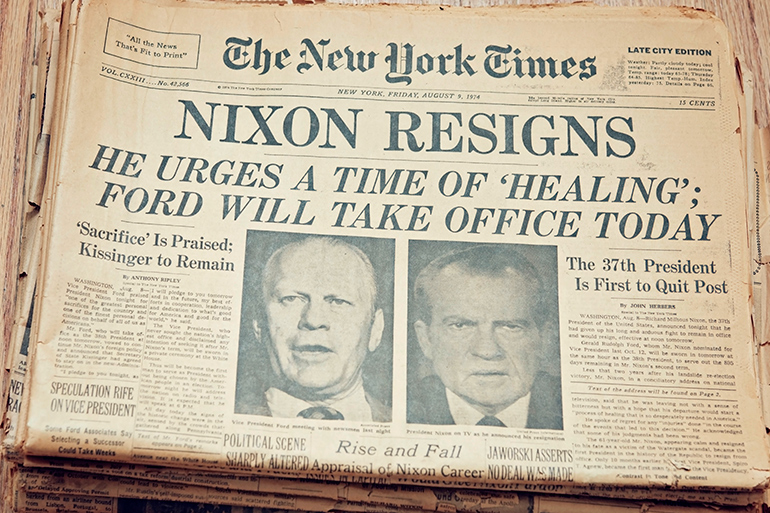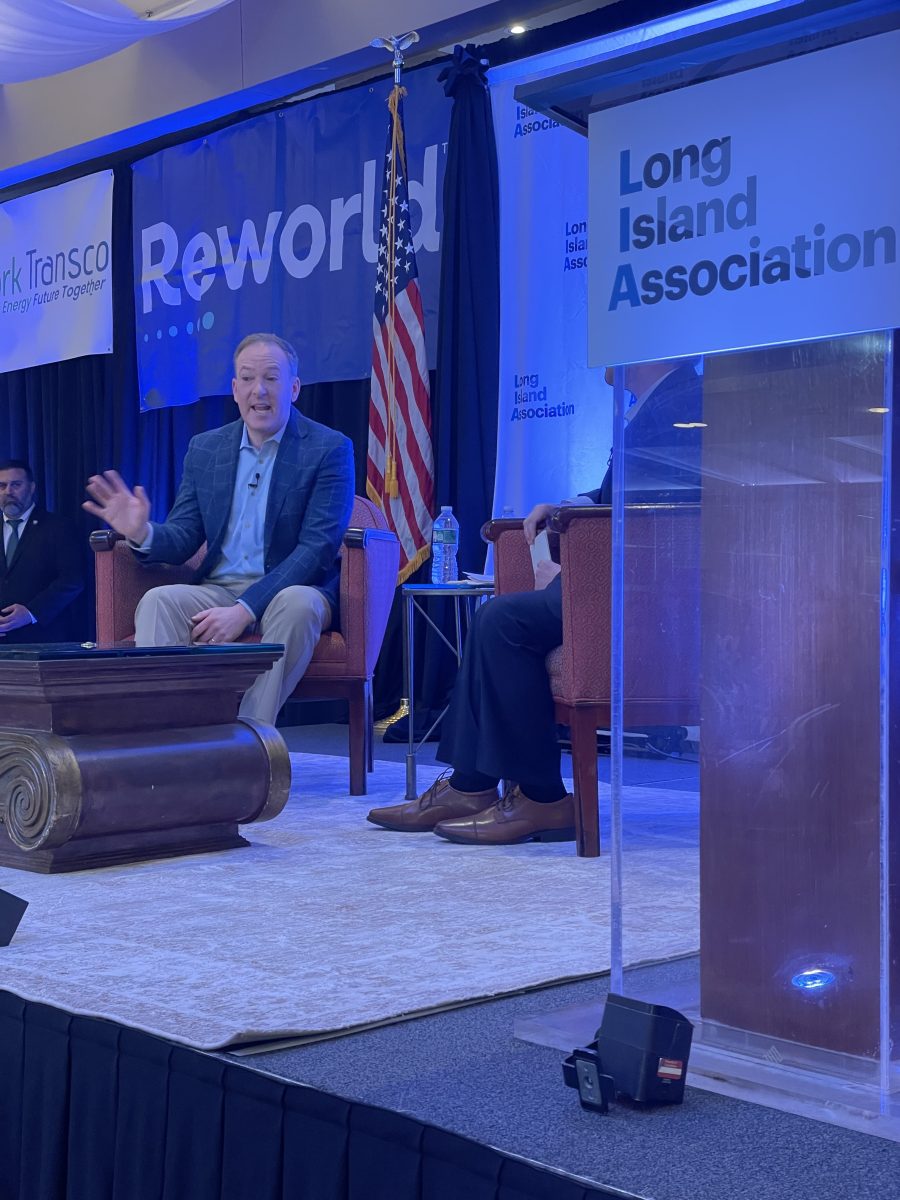Nixon in Montauk: Only President Ever to Resign Vacationed at Gurney’s

Only one president was ever driven from office by an angry public in the middle of his term. That man was Richard Nixon, a frequent summer visitor to Montauk in the 1960s and 1970s.
Simply the threat of impeachment caused him to make that decision. He had done bad things and they were found out about. His party told him they not only did not have the votes to avoid impeachment in the House. They also told him that his party might not be able to summon enough Republican votes to avoid his being thrown out of office. Nixon chose therefore to simply resign before the impeachment proceedings got underway. He fled the White House in a military helicopter and soon returned to his home in San Clemente, California, his wife, Pat, at his side, where he defended himself in numerous lawsuits, wrote his memoirs, and eventually re-entered public life. After that he moved to New Jersey, where, 13 years later, he died at 81.
Nixon, the vice president from 1952 to 1960, vacationed at Gurney’s Inn in Montauk as a private citizen throughout the 1960s. After he became president in 1968, he continued to enjoy Montauk. People in town knew he was here, but he almost never appeared in public. For the most part he remained enjoying what Gurney’s had to offer while renting the oceanfront Skipper’s Cottage, which was always made available to him at that resort. The late playwright Edward Albee, who lived on the ocean several houses to the west, told me that he often saw Nixon and his wife strolling along on the beach, with half a dozen armed secret service men trailing along behind. He wrote his nomination acceptance speech for the Republican National Convention in Montauk in the summer of 1968.
Besides Gurney’s, he often visited the Montauk Lake Club on East Lake Drive—the formidable waterfront castle on that road, halfway to the airport—where two of his closest personal friends, Robert Abplanalp and Bebe Rebozo, both millionaires, were members. He sometimes went out to sea for cruises with Abplanalp aboard Abplanalp’s grand yacht, the Sea Lion.
Several locals visited Nixon at Gurney’s, including Perry B. Duryea—the Speaker of the Assembly in Albany who one year ran for governor and lost to Hugh Carey—also Town Supervisor Ed Ecker Sr. and assemblyman John Behan, all of whom were Montauk residents.
For many years, the room where Nixon slept at the Lake Club was renamed for him. There were also plaques on the walls at the Lake Club and near the entryway and main dining room of Gurney’s for many years, including thank you letters on presidential stationary from the Nixons to Nick Monte, then the keeper of Gurney’s Inn, thanking him for their stay and indicating they had a wonderful time.
The plaques at Gurney’s were up until Nixon resigned in disgrace in 1974 during the second year of his second term, at which time it was thought the inn would be better off not having them up there. (I wonder if the plaques are now back up. Time has passed. He was our president.)
The way I see it, what Nixon did that caused him to resign was in many ways similar to what Trump did in Ukraine. He used his presidency for personal political gain and then lied about it. During the campaign for Nixon’s second term in 1972, five men broke into the Democratic National Committee headquarters at the Watergate Hotel and were arrested. Their intention was to plant listening devices so the Republicans could hear exactly what the Democrats intended to do in the run for president.
Two reporters from The Washington Post, Carl Bernstein and Bob Woodward, looked deeper into it and wrote that one of the men had connections to the Committee for the Re-election of the President. As the reporting and investigations went on, Nixon said he had nothing to do with this, but then it was revealed that Nixon had recording devices in the Oval Office so every utterance of his presidency would be preserved for posterity. It was demanded that Nixon release the tapes, which he eventually did, but not before 18½ minutes were erased (originally his secretary said she “accidentally” erased these parts while transcribing). Unfortunately for him, certain parts of conversations remained, where he discussed plans to interfere with the Watergate investigation and cover up his administration’s involvement.
Back then, truth was truth and everyone knew it. Today, truth is considered only a possibility and fiction is often presented as truth. The people who don’t like Trump keep pointing out the lies and people who like Trump say they know but just don’t care and will vote for him anyway. Go figure.
Incidentally, in 1962 and in the second year of running Dan’s Papers, I got a call from Nick Monte at Gurney’s, who said Nixon was staying there and would I like to interview him. Nixon had just been defeated in a run for Governor of California. As a 22-year-old, I didn’t have much journalistic experience and told him no thanks. After the call ended, I thought, well, if he’s looking for publicity for the Inn, he should pay for it. I remember this well. I continue to kick myself.



